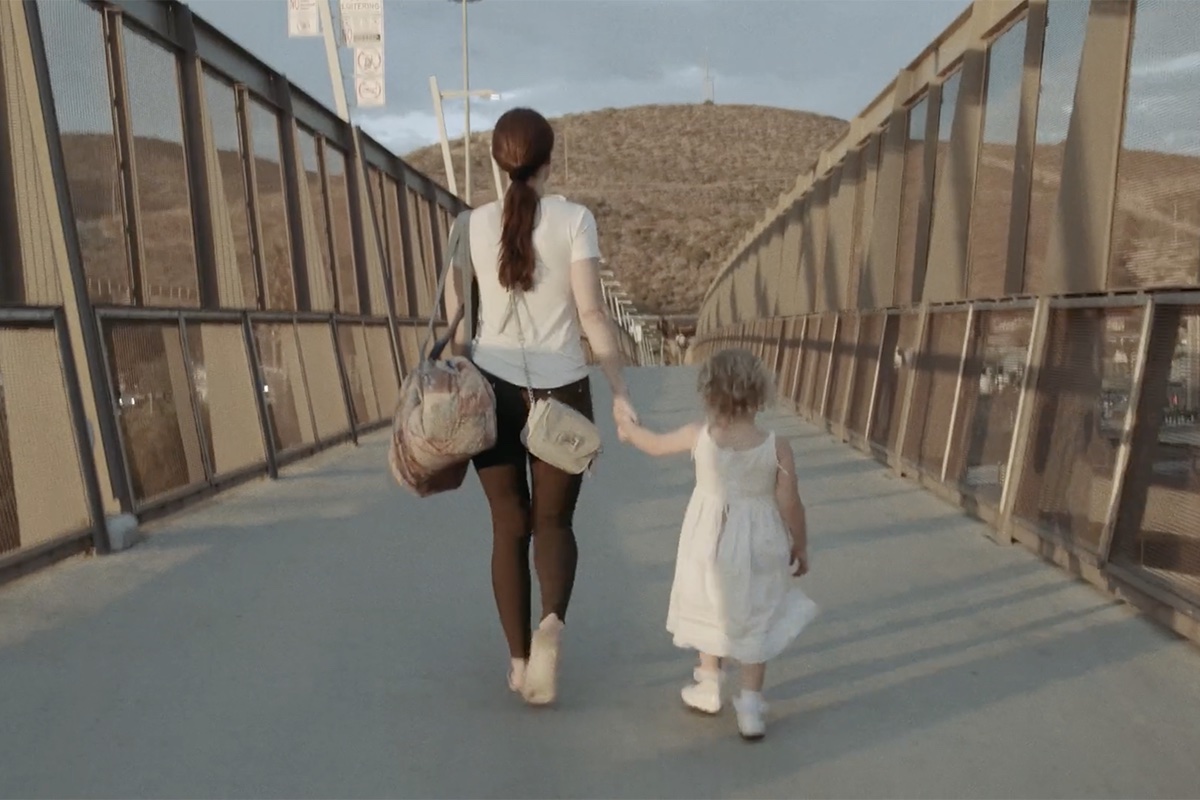Maids Coming out of the Shade
Whether by design or accident, recurring themes tend to show up over the course of a SBIFF program. One of the more surprising themes in ’23: nannies, and their right to fight and take matters into their hands.
A favorite film of mine from the festival crop is the artistically realized and naturalistically textured Manuela, directed by Argentinian Clara Cullen and with Barbara Lombardo in the lead role and a magnetic, strong performance by the nannied baby, played by Alma Farago.
But if Manuela leans into the winds of inventive film festival fare, Dr. Feelgood is more in the house when it comes to The Nannies, a French comedy (directed by Julien Rambaldi) with social conscience and an instantly loveable protagonist in the street-worker-turned-maid Angele, played the flexible and irresistible Eye Haidara. We can’t take our eyes or heart off of her.
Angele, an immigrant from the Ivory Coast, is struggling to survive—as is Manuela—and has a son back home where she sends her money via Western Union. After landing a nanny gig, she bonds with and coaches the son (in ways of being “sneaky,” among other things), and rallies to the cause of her friend’s exploitative nanny job by masquerading as a counselor. Matters escalate, the nannies unite, a love interest brings his legitimate legal acumen to the cause, and the result is a polished yet slightly dangerous comedy with dramatic asides and righteous indignation bubbling up.
Call it the feelgood hit of the festival, or at least a strong contender.
Bereavement Rites
From another corner of human experience entirely, two films deal with grief in very different ways and in different styles—just as the grieving process differs for everyone. In director Martijn de Jong’s involving Narcosis, Netherland’s bid for the foreign film Oscar, a playful father of two young children essentially submerges into death, as a deep-sea diver, before the opening credits. That event, and mystery, become the core of a story of the family’s slow and disarming attempts to get past, or come to terms, with the missing piece in the family. Including in the process is the poignant set-piece of an old phone booth brought home by the father in the first scene (“it’s an old-fashioned mobile phone” he jokes), which becomes an imaginary hotline to papa.
A late-breaking, climactic storm scene feels a bit forced in the midst of the authenticity of the family dynamics, but otherwise, the film affectingly pulls us into an atmosphere of suspended emotion and inner churnings. It’s a reflection on the elusive but unavoidable act of grieving.
In the more enigmatic but also engaging Croatian film Traces (one of this fest-goers favorites so far), the subject of death and funerary rites is literally there at the outset, and changes shape and significance as the film proceeds. In director Dubravka Turić’s hypnotic film, her quiet heroine Ana (a marvelously understated turn by Marija Škaričić) is an anthropologist in Zagreb working on a book about ancient Slavic funeral rituals involving signs, symbols and tombstones. Her own father’s impending death adds a personal dimension to her daily work life and obsession with signs—“traces” of life and life beyond life.
What becomes fascinating about this grief study, from a cinematic standpoint, is the deft way it pulls our attentions to awareness of visual signs and signifiers, not only on esoteric tombstones, but in the urban fabric of graffiti. At one point in an otherwise fairly straight cinematographic approach, a long tracking shot of a graffiti-flecked Zagreb wall takes on new meaning, as a modern equivalent of the impulse to make markings to inscribe mortality…and beyond.
Going Places, as Rx

Escapism, and its potential to fail, is at the heart of Spanish actor/director Jesus Lloveras’ Ibiza Blue. Here we have a tail of three characters whose disrupted lives have led them to find a beautiful escape route, to the stunning island of Ibiza. (A list of beautiful locales as ripe landing spots for refugees from elsewhere could also include Santa Barbara and Ojai, to put a local spin on the phenom.).
The triangle of characters in flight starts with Julio (Gonzalo Bouza), a man haunted by his brother’s suicide, who sets up a humble new life on the island, followed by Alba (Alicia Lorente), a woman recovering from the death of her father. Finally, Julio’s friend from Madrid Carlos (played by the handsome Lloveras), unhinged by his daughter’s death and seeking some resolution. Over beers, Julio tells Carlos “in Ibiza, somehow we are all pirates in some way.” He proposes a toast: “To new friends on hippie islands.”
The pirate’s and hippies’ life drifts along , tinged by melancholy, before the expected friction of crossed love interests intervenes. While the film slips into melodramatics at times, it is by and large a beautiful film/place to visit for a couple of hours. Call it a micro-escape.
Support the Santa Barbara Independent through a long-term or a single contribution.





You must be logged in to post a comment.